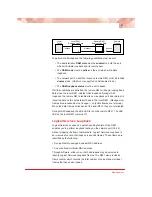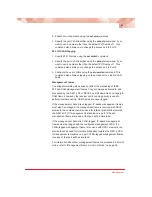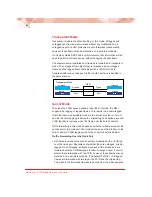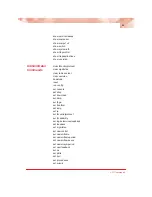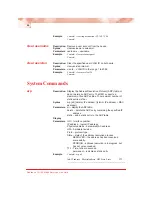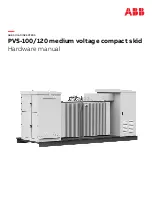
47
Management
IEEE 802.1Q Mode
In this mode, all frames leaving the trunk port are VLAN tagged to
identify the VLAN membership of a frame across bridges. The tag
identifies the frame’s VLAN and prioritization. To properly operate under
IEEE 802.1Q mode, the R821 must be configured with a list of
acceptable user VLANs. Up to 16 VLANs may be specified.
The following sections describe the filtering and forwarding process that
is applied to frames entering the access port and the trunk port.
Traffic Filtering and Forwarding Over the Trunk Port
For user data frames entering the access port, only untagged frames and
tagged frames which match one of the configured user VLANs are
forwarded. All other frames are discarded.
•
Untagged frames are forwarded with the PVID assigned to them.
The p-bits in the forwarded frames are not changed.
•
Tagged frames, which belong to one of the acceptable user VLANs,
are forwarded without changes to the frame.
•
Priority-tagged frames (i.e., frames with a VLAN ID of 0) received at
the access port are forwarded with the the VLAN tag set to the PVID
value. The p-bits in the forwarded frames are not changed.
•
Untagged Layer 2 control protocols (L2CP) are forwarded transpar-
ently, however, they may be discarded on a per-protocol basis.
•
If the received frame contains DSCP and/or p-bit elements, that
information will be used to perform internal queuing, otherwise the
access port’s default port priority will be used for queuing.
The following example shows how various types of frames arriving at the
access port are processed in 802.1Q mode.
R821
Access
Port
Trunk
Port
IEEE 802.1Q Mode
untagged
tagged
tagged (p-bits = assigned queue)
tagged
PVID = 2
user VLAN
= 10-25
priority-tagged
dropped
2
25
25
26
0
tagged
26
tagged (p-bits=original)
2
untagged L2CP
untagged L2CP

